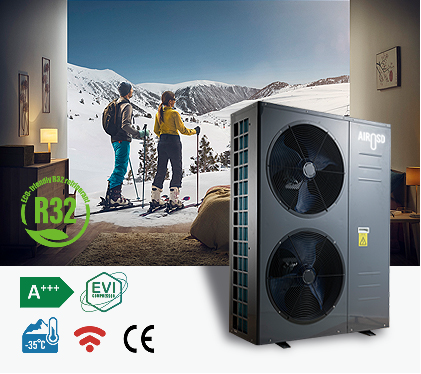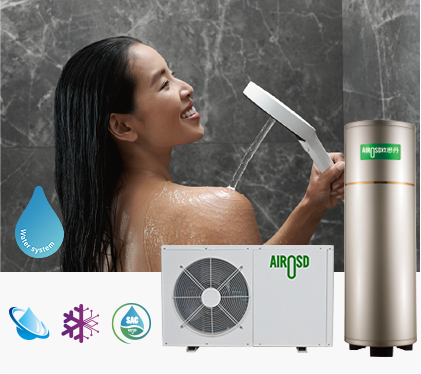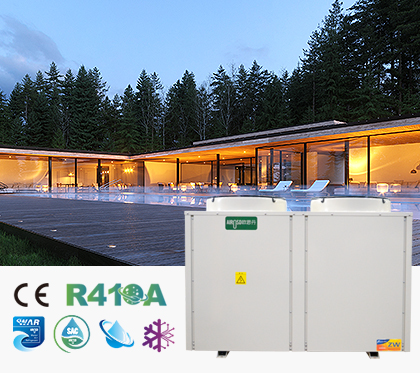Heat pumps are an increasingly popular choice for heating and cooling homes, thanks to their energy efficiency and eco-friendliness. However, there can be some confusion about the role of water in heat pump systems. Some people ask if heat pumps consume water in their functioning. In this article, we will explore the different types of heat pumps and their relationship with water to provide a clear understanding of how they work.
What Are The Heat Pumps?
Heat pumps are machines that transport heat from one site to another while also providing heating and cooling. They operate on the premise of transporting heat rather than creating it, which makes them extremely efficient. There are three main types of heat pumps including air-source, ground-source (geothermal), and water-source (also known as water-to-water or hydronic heat pumps).

Air-Source Heat Pumps
Air-source heat pumps are the most commonly used heat pump systems, particularly in residential and commercial applications. These heat pumps are very efficient and multifunctional, capable of both heating and cooling. Here's how they work in more detail:
Heat Exchange from the Air: Air-source heat pumps take heat from the outside air during heating mode, even in freezing conditions. This heat is subsequently transported to the indoor unit, where it heats the building's interior. In the cooling mode, the process is reversed, and the heat pump removes warm air from the indoors and expels it outside.
Refrigerant-Based Operation: The core of the air-source heat pump's operation is a refrigerant. The refrigerant circulates through a closed-loop system, evaporating and condensing to facilitate heat exchange. The environmental effect of refrigerants varies, and current systems employ more ecologically friendly choices with reduced global warming potential.
Efficiency: These heat pumps are well-known for their energy efficiency, particularly in mild climes. They can produce up to three times the energy they consume, making them an excellent choice for areas with milder winters and summers.
Supplementary Heating: In extremely cold climates, air-source heat pumps may need supplementary heating, such as electric resistance heating, to maintain indoor comfort. However, technological developments have resulted in increased performance in cold temperatures, lowering the requirement for additional heating.
.png)
Wholesale Air Source Heat Pump Water Heater
Water-Source Heat Pumps
Water-source heat pumps, also known as water-to-water heat pumps or hydronic heat pumps, are used in a variety of commercial and residential applications. Water serves as the principal heat exchange medium in these systems. Here's how they work:
Water Loop System: Water-source heat pumps rely on a dedicated water loop that circulates water between the heat pump unit and the building. This water loop is often drawn from a well, pond, lake, or other source of water and returned after heat exchange.
High Efficiency: Water-source heat pumps are highly efficient because they can utilize the consistent temperature of the water source for both heating and cooling. They may be appropriate for huge structures and industrial sites.
Open-Loop Vs Closed-Loop Systems: These systems are further classed as open-loop and closed-loop. Open-loop systems use water from a natural source and return it, while closed-loop systems circulate a water and antifreeze mixture in a closed loop. Closed-loop systems are increasingly frequent because they provide better control and keep the water supply clean.
Environmental Considerations: When considering water-source heat pumps, consider the environmental effect as well as water availability. Sustainable sourcing and responsible water usage are key factors to consider in such systems.

Heating& Cooling & Hot Water Heat Pump
Ground-Source Heat Pumps
Ground-source heat pumps, often known as geothermal heat pumps, are well-known for their high efficiency and stability. They use the earth as a heat source in the winter and a heat sink in the summer. Here's how they work:
Heat Exchange With The Earth: In a ground-source heat pump system, a series of underground pipes, known as a ground loop, circulate a mixture of water and antifreeze. This loop is buried in the earth, where the temperature stays pretty stable all year, hovering about 50-60 degrees Fahrenheit.
Transfer Of Heat: During the heating season, the fluid in the ground loop absorbs heat from the earth and carries it to the heat pump inside the building. The heat pump then concentrates this heat and transfers it to the building's air distribution system. The process is reversed in cooling mode, with the heat pump extracting heat from the building and dispersing it into the ground loop.
Efficiency And Environmental Benefits: Geothermal heat pumps are highly efficient, as they rely on stable ground temperature. They can be up to 50% more efficient than conventional heating and cooling systems. They also have a lesser environmental effect due to fewer energy use and emissions.
Conclusion
The use of water in heat pumps depends on the type of heat pump system. It's important to understand the differences between these heat pump types to make an informed decision when choosing a heating and cooling system for your home or building. AIROSD, as a premier heat pump manufacturer in China, offers different kinds of heat pumps including air-source heat pumps, ground-source heat pumps, and water-source heat pumps. If you want to get more product details, browse our website now!



